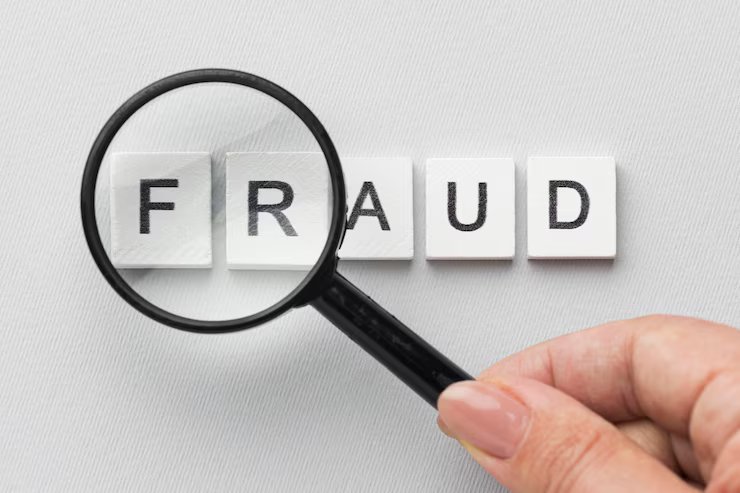Phone: 619-432-5145
Phone: 619-432-5145

Investment fraud encompasses a wide array of deceptive practices designed to misappropriate investor funds through misrepresentation, manipulation, or outright deceit. Affinity fraud is one such practice where scammers exploit the trust inherent in religious or ethnic communities to offer fraudulent investment opportunities. Both individual investors and institutional stakeholders may fall victim to these schemes, often with devastating financial and psychological consequences. This article provides a comprehensive legal overview of 25 notable types of investment fraud, the associated risks, and measures that may be taken to identify and mitigate such threats.
Investment scams are a significant threat to investors, with many people losing money to fraudulent schemes every year. These scams can take many forms, including pyramid schemes, Ponzi schemes, and online investment fraud. It’s essential for potential investors to be aware of the common investment scams and to take steps to protect themselves. Investment scam artists often use high-pressure sales tactics to convince people to invest in their schemes, promising unusually high returns with little or no risk. However, these investments are often fraudulent, and investors can lose a significant amount of money. To avoid falling victim to investment scams, it’s crucial to do your own research, verify the legitimacy of investment opportunities, and be cautious of unsolicited investment offers.

Investment fraud constitutes a significant threat to the integrity of financial markets. On an individual level, victims may suffer irreversible financial harm, particularly in cases involving life savings, retirement funds, or trust assets. On a broader economic scale, widespread fraud undermines market confidence, distorts capital allocation, and imposes a substantial burden on regulatory and judicial resources.
Regulatory agencies such as the U.S. Securities and Exchange Commission (SEC), the Commodity Futures Trading Commission (CFTC), and the Financial Industry Regulatory Authority (FINRA) are tasked with enforcement actions and investor protection. The Attorney General also plays a crucial role in combating online investment fraud by advising investors on recognizing and avoiding scams. Nevertheless, prevention remains the most effective deterrent.
Early identification of investment fraud is not merely advantageous—it is essential to protecting both individual investors and the broader integrity of financial markets. Fraudulent schemes often operate under the guise of legitimacy, employing high-pressure sales tactics, promises of abnormally high or guaranteed returns, and deliberate attempts to bypass established due diligence procedures and regulatory oversight. In many cases, once the fraudulent nature of an investment is uncovered, the funds have already been misappropriated or become unrecoverable.
Scammers often use cold calls to mislead individuals into investing by creating false urgency and confusion. The window for effective legal intervention and financial recovery is often narrow. Consequently, proactive detection mechanisms—such as regular portfolio audits, verification of licensure and registration of financial professionals, and a thorough review of offering materials—play a critical role in fraud prevention. Investors must maintain a healthy skepticism toward unsolicited offers, “exclusive” investment opportunities, or overly complex financial products that lack transparency.
Legal professionals and compliance officers carry an even greater responsibility. They are expected to conduct comprehensive due diligence, ensure regulatory compliance, and provide prompt counsel when warning signs emerge. Vigilance should include monitoring client communications, identifying patterns of misconduct, and escalating concerns to the appropriate regulatory bodies or enforcement agencies without delay.
Ultimately, fostering a culture of legal and financial literacy among investors, advisors, and institutional stakeholders is one of the most effective long-term deterrents against investment fraud. Through education, awareness, and legal vigilance, it becomes possible to reduce vulnerability to scams, mitigate financial losses, and uphold the rule of law in the investment landscape.

Investment fraud manifests in various forms, ranging from time-tested schemes that exploit basic trust to sophisticated modern scams leveraging digital platforms and evolving technologies. While fraudulent strategies may differ in their presentation and complexity, they often share common elements—deception, misrepresentation, and the unlawful solicitation of funds. This section provides an in-depth examination of 25 prevalent investment fraud schemes, beginning with traditional schemes that, despite widespread awareness, continue to ensnare unsuspecting investors across jurisdictions. Recognizing the structure and warning signs of these fraudulent activities is critical to avoiding financial loss and ensuring compliance with applicable securities laws.
Despite advancements in regulation and investor education, several foundational forms of investment fraud continue to reappear with alarming frequency. These traditional schemes—such as Ponzi schemes, pyramid structures, and gifting circles—have endured for decades due to their deceptive simplicity and the psychological tactics they employ, including the manipulation of trust, urgency, and the promise of quick financial gain. Though widely known, these fraudulent arrangements are often repackaged to appear novel or legitimate, making them particularly dangerous for inexperienced or vulnerable investors. Understanding their mechanics and legal implications is a critical first step in safeguarding assets and maintaining market integrity.
A Ponzi scheme involves the use of new investor capital to pay returns to earlier investors, absent any legitimate profit-generating activity. This setup ultimately leads to the loss of all funds for later investors once the scheme collapses, highlighting the unsustainable nature of such fraudulent operations. These schemes are unsustainable and inevitably collapse when recruitment slows.
Legal Note: Classified as securities fraud under federal law; violators may be prosecuted for mail and wire fraud, among other offenses.
In a pyramid scheme, participants profit primarily through the recruitment of others, rather than through legitimate investment returns. Such schemes are inherently deceptive and unlawful.
These involve a structure where participants provide money to others with the expectation of receiving more in return. Lacking legitimate economic substance, they constitute fraudulent solicitations.

The rapid evolution of financial technology and the widespread adoption of digital assets have created fertile ground for a new class of investment fraud. Fraudulent schemes in the cryptocurrency and digital finance space exploit the complexity, anonymity, and regulatory gaps inherent in decentralized systems. From fake cryptocurrency exchanges and fraudulent token offerings to phishing attacks and DeFi “rug pulls,” these scams often target investors unfamiliar with the technical intricacies of blockchain technology. The speed and global nature of these transactions further complicate enforcement and recovery. The increasing prevalence of crypto scams emphasizes the need for vigilance, as fraudsters exploit digital assets for fraudulent activities due to their rapid exchange capabilities. As such, heightened legal vigilance, technical due diligence, and regulatory awareness are essential to identifying and mitigating fraud in this emerging financial frontier.
The rise of artificial intelligence has introduced new risks, particularly with AI voice scams where generative AI can convincingly imitate voices and images. This technology is exploited by scammers to deceive individuals, making it crucial for people to remain vigilant and verify identities in suspicious situations.
Fraudsters construct fake digital exchanges, luring investors into depositing cryptocurrency or fiat currency, only to abscond with the assets.
These schemes involve coordinated efforts to artificially inflate the value of a digital asset through misleading promotion, followed by mass liquidation by insiders.
A “rug pull” occurs when the creators of a decentralized finance (DeFi) project drain investor funds and abandon the platform.
Scammers may launch fictitious or misrepresented ICOs to obtain funds under false pretenses, often with no intent to deliver a functioning product or service.
These scams employ deceptive digital communications to trick users into divulging private keys or seed phrases, thereby granting unauthorized access to crypto assets.

While technological innovation has given rise to modern forms of fraud, traditional investment channels remain highly vulnerable to manipulation. Fraudsters continue to exploit the credibility of established financial instruments—such as stocks, brokerage accounts, and advisory services—to carry out deceptive practices that appear legitimate on the surface. These schemes often involve unregistered brokers, unauthorized trading activity, and false representations related to market performance or insider information. The familiarity of these platforms can lull investors into a false sense of security, making such scams particularly insidious. Recognizing and understanding these tactics is imperative for investors, compliance professionals, and legal advisors tasked with ensuring adherence to regulatory standards and protecting client assets.
Fraudsters may falsely claim access to material nonpublic information, offering illicit gains through the unlawful use of insider information.
Legal Note: Insider trading is a serious federal offense under the Securities Exchange Act of 1934.
Unregistered brokers use aggressive and deceptive sales tactics, often via cold calls, to promote speculative or fraudulent investments.
Promoters manipulate the market for thinly traded securities, inflating prices before executing large-scale sales, leaving other investors with substantial losses.
Investors are solicited to pay fees for supposed privileged stock recommendations, which typically lack any basis in fact or analysis.
This unethical practice involves excessive trading by a broker in a client’s account for the purpose of generating commissions, rather than furthering the client’s investment objectives.

Real estate has long been considered a stable and lucrative avenue for investment, which unfortunately makes it an attractive target for fraud. Scammers exploit the perceived security of property ownership by presenting deceptive opportunities involving foreign land sales, foreclosure assistance, or fraudulent crowdfunding platforms. These schemes often prey on investors’ desire for passive income or high returns through tangible assets, yet they frequently involve misrepresentation of property values, title irregularities, or outright fabrication of ownership. Given the legal complexities surrounding real estate transactions, including zoning laws, title verification, and escrow procedures, investors must exercise a heightened degree of scrutiny. Legal professionals play a critical role in conducting due diligence, ensuring regulatory compliance, and protecting clients from substantial financial and legal exposure.
Scammers market foreign land or properties with exaggerated or fabricated claims of value, often without any real ownership rights or regulatory approval.
These scams target homeowners facing foreclosure, promising assistance in exchange for upfront fees while delivering little or no actual relief.
Fake platforms misrepresent real estate projects or ownership structures, soliciting investments under false pretenses without proper regulatory oversight.

Elderly and retired individuals are among the most frequently targeted victims of investment fraud, owing to their accumulated savings, predictable income streams, and in some cases, diminished financial oversight or cognitive decline. Fraudsters often use manipulative tactics—such as appeals to trust, authority, or fear—to persuade seniors into purchasing unsuitable or entirely fictitious financial products. Common schemes include high-pressure sales at so-called “educational” seminars, fraudulent annuities, reverse mortgage scams, and impersonation of government agencies like the IRS. These deceptive practices not only result in significant financial losses but can also erode the victim’s sense of security and independence.
When faced with suspicious investment opportunities, it is crucial to consult a trusted family member to help assess the situation and avoid potential scams.
As such, it is imperative for legal advisors, financial professionals, and family members to remain vigilant, provide clear guidance, and advocate for stronger protections to prevent the financial exploitation of this vulnerable demographic.
These are often predatory marketing events where retirees are pressured into purchasing unsuitable or high-risk investment products.
Unscrupulous agents may sell unsuitable or fictitious annuities to seniors, exploiting their desire for stable retirement income.
Scammers pose as tax officials and demand payment of fabricated liabilities through “investment” vehicles, often under threat of legal action.
Senior homeowners may be coerced into using reverse mortgages to fund speculative or fraudulent investments, risking loss of home equity or foreclosure.

Investment scams that exploit human emotion and personal relationships represent one of the most manipulative and psychologically damaging forms of financial fraud. Rather than relying solely on technical deception or market-based misrepresentations, these schemes leverage trust, affection, or social influence to persuade individuals to part with their money. Common examples include romance scams, where emotional bonds are manufactured online to solicit fraudulent investments, as well as influencer-driven pump-and-dump schemes and fraudulent social media investment communities. If someone online begins to request money without an in-person meeting, it’s crucial to consult a trusted friend, as their perspective can help identify potential fraud more effectively.
These scams are particularly effective because they bypass traditional skepticism and due diligence by establishing a false sense of intimacy or credibility. Combating such fraud requires not only legal awareness but also public education, digital literacy, and increased accountability for those who wield influence in online financial discourse. It is also important to highlight the dangers of sending money to individuals who might pose as urgent contacts, urging caution and verifying identities before complying with requests for funds.
Scammers exploit personal relationships—often developed through online platforms—to solicit fraudulent investments disguised as joint ventures or emergencies.
Public personalities with large followings promote investments for personal gain, often without disclosure of their financial interests or the risks involved.
Bad actors create seemingly legitimate social media communities to build trust and encourage collective investment in fraudulent schemes.

Fraudsters are increasingly adapting to investor interest in innovative, high-growth sectors by promoting so-called “exclusive” or cutting-edge investment opportunities that often lack transparency and regulatory oversight. These scams frequently appear in the form of pre-IPO offerings, insider access deals, or ventures marketed under the guise of environmental, social, and governance (ESG) initiatives, such as green energy projects. Swindlers also exploit the allure of new technology, claiming it can recover precious metals at dirt-cheap prices, including gold, silver, and platinum that traditional methods fail to retrieve. What makes these deceptions particularly dangerous is their strategic appeal to sophisticated or aspirational investors seeking early access to lucrative opportunities. Often cloaked in professional branding and complex financial language, these schemes can evade traditional scrutiny. Legal and financial professionals must be especially vigilant in assessing the legitimacy of such offerings, verifying issuer credentials, and ensuring compliance with securities laws to protect investors from these evolving threats.
Fraudsters leverage interest in environmental, social, and governance (ESG) investing by promoting fake or misleading green ventures without substantiation or compliance.
Investors are promised early access to “exclusive” pre-IPO stock or insider deals, often involving unregistered securities or nonexistent opportunities.
There are several red flags that can indicate an investment scam. These include promises of unusually high returns with little or no risk, pressure to invest quickly, and a lack of clear information about the investment opportunity. Investment promoters may also use fake or misleading information to convince people to invest, and they may promise guaranteed returns or predict future events with certainty. Other red flags include investments that seem too good to be true, penny stocks, and business opportunities that require a significant upfront investment. It’s also important to be wary of investments that are not registered with state securities regulators, as these may be fraudulent. By being aware of these red flags, investors can take steps to protect themselves and avoid losing money to investment scams.

There are many legitimate business and investment opportunities available, but it’s essential to approach these with caution. Investment opportunities that seem too good to be true often are, and it’s crucial to do your own research and verify the legitimacy of any investment before putting in your money. Precious metals, digital assets, and promissory notes can be legitimate investments, but they can also be used in fraudulent schemes. It’s also important to be aware of the risks involved in any investment and to carefully review the fine print before investing. By taking a cautious and informed approach to business and investment opportunities, investors can avoid scams and make informed decisions about their money.
Individuals who suspect they have been the victim of investment fraud should act swiftly by reporting the misconduct to the appropriate regulatory or law enforcement authorities. Timely reporting not only increases the likelihood of recovery but may also help prevent further harm to others.
Regulatory and Enforcement Resources:
Victims of investment fraud may be entitled to pursue civil remedies to recover financial losses. Legal recourse may include:
When the fraud involves a licensed broker, financial advisor, or investment firm, claims may be resolved through FINRA arbitration, a private dispute resolution forum tailored to securities-related matters. In criminal proceedings, courts may order restitution as part of sentencing, though recovery in such cases may be limited depending on the defendant’s financial capacity.

Contact Diana Legal now (619-432-5145) for a free consultation and case evaluation!
Investment fraud is a complex and rapidly evolving area of financial crime. Understanding the legal frameworks governing these schemes—alongside the specific red flags associated with them—is essential to protecting yourself, your assets, and your financial future.
At Diana Legal, we are committed to empowering individuals with the legal knowledge and resources necessary to identify misconduct, hold perpetrators accountable, and pursue justice through all available legal channels. If you believe you have been the victim of a fraudulent investment, consult with a qualified attorney to evaluate your options and begin the recovery process.
Remember: Due diligence, transparency, and independent verification are the cornerstones of safe investing. When in doubt, seek legal counsel.
In conclusion, investment scams are a significant threat to investors, and it’s essential to be aware of the common scams and to take steps to protect yourself. By doing your own research, verifying the legitimacy of investment opportunities, and being cautious of unsolicited investment offers, you can avoid losing money to investment scams. It’s also important to be aware of the red flags of investment scams, such as promises of unusually high returns with little or no risk, and to approach business and investment opportunities with caution. Remember, if an investment seems too good to be true, it probably is. Don’t let investment scam artists take advantage of you – stay informed, be cautious, and always prioritize your financial security. By following these tips and staying vigilant, you can protect yourself from investment scams and make informed decisions about your money.